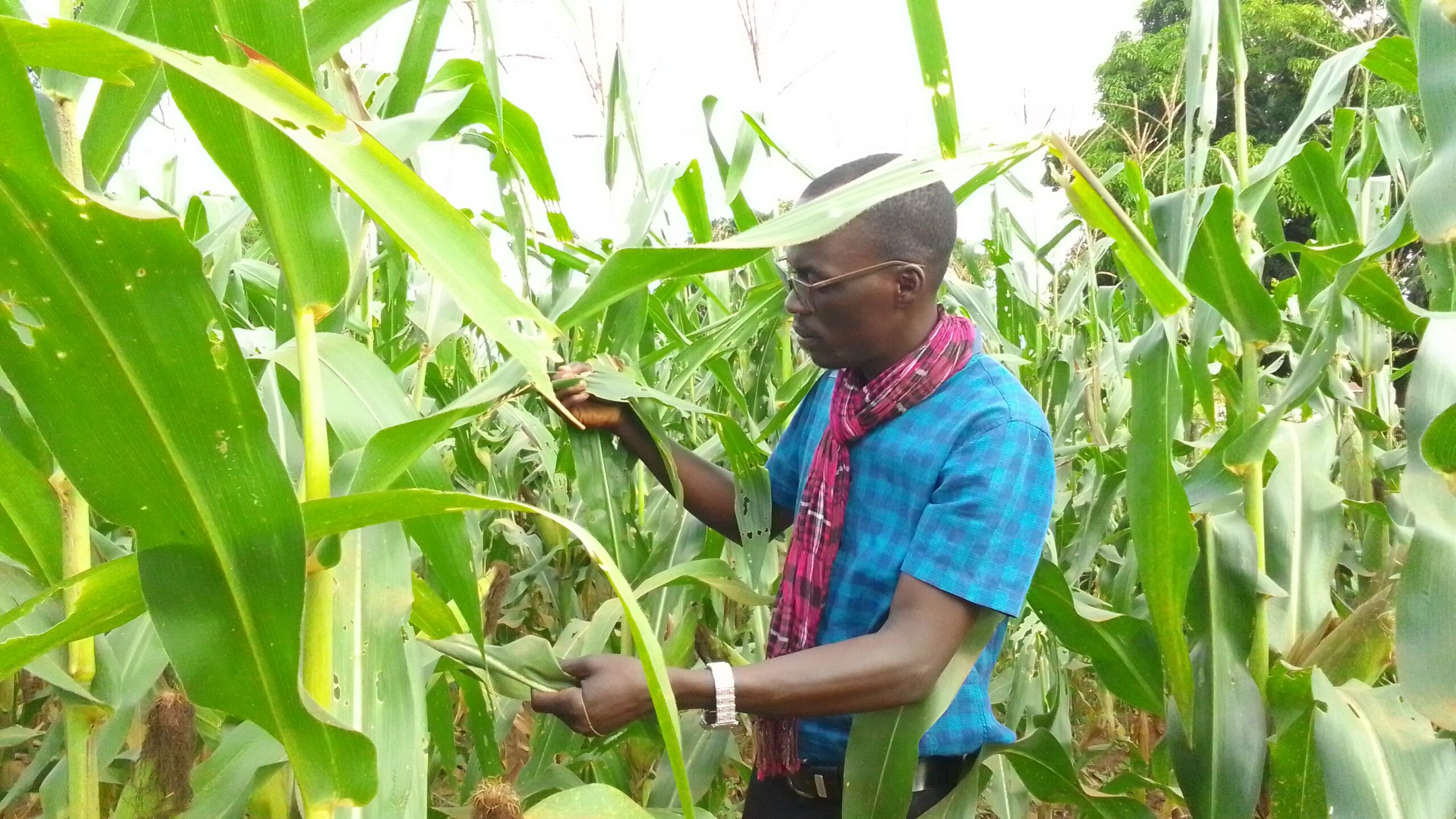
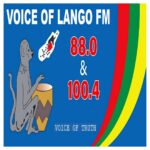 Voice of Lango
Voice of Lango

 Voice of Lango
Voice of Lango
1 December 2024, 7:37 pm
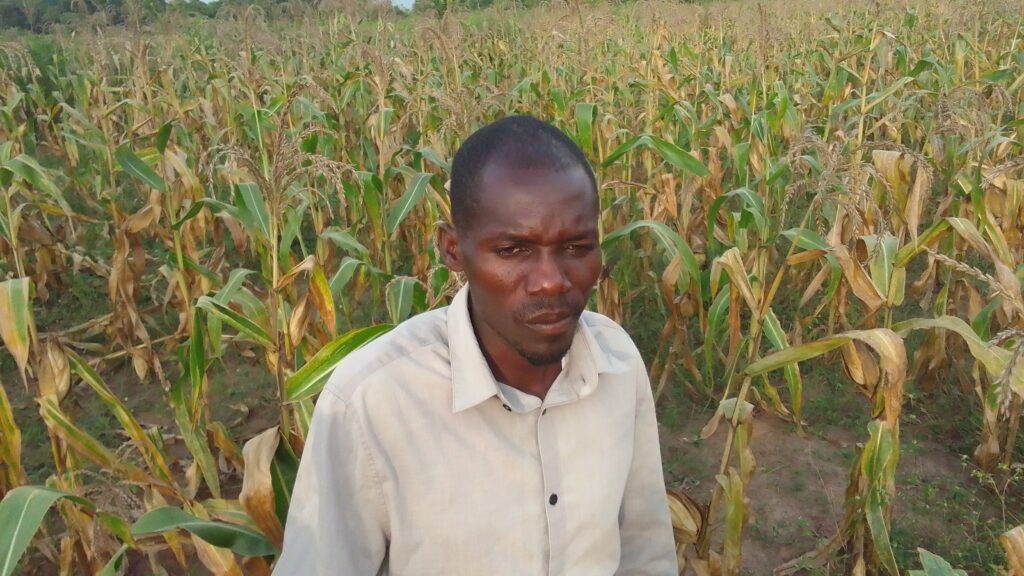
By Denish Ongora
Lira
Maize farmers in Lira district are increasingly turning to hybrid varieties as a safeguard against the unpredictable weather patterns brought on by climate change.
Tonny Ali, a seasoned maize farmer from Amiabil ward in Agweng town council, Lira district, is one such example.
Since 2017, he has grown hybrid maize, starting with the DK8033 variety before moving on to DK777.
Ali, who grows maize on a three-acre plot, says the DK777 variety has significantly improved his yields.
“I expect to harvest 40 bags of maize from my three acres, and with the current price of UGX 700 per kilogram, I anticipate a total of UGX 2.8 million from the sales,” he explains.
When Ali first transitioned to hybrid maize, he was harvesting just 5-6 bags per sack of seed planted.
Now, his harvest has grown exponentially to 40 bags, thanks to better agronomic practices and the superior resilience of hybrid varieties, particularly in drought-prone areas.
“Initially, I didn’t use fertilisers or rotate crops,” Ali admits. “But now, I rotate maize with legumes and apply both organic manure and commercial fertilisers to improve soil fertility.”
The transition has had significant financial benefits for Ali.
His increased yields have allowed him to build a four-room permanent house, buy livestock including goats and sheep, purchase oxen and ploughs, and comfortably pay for his children’s education.
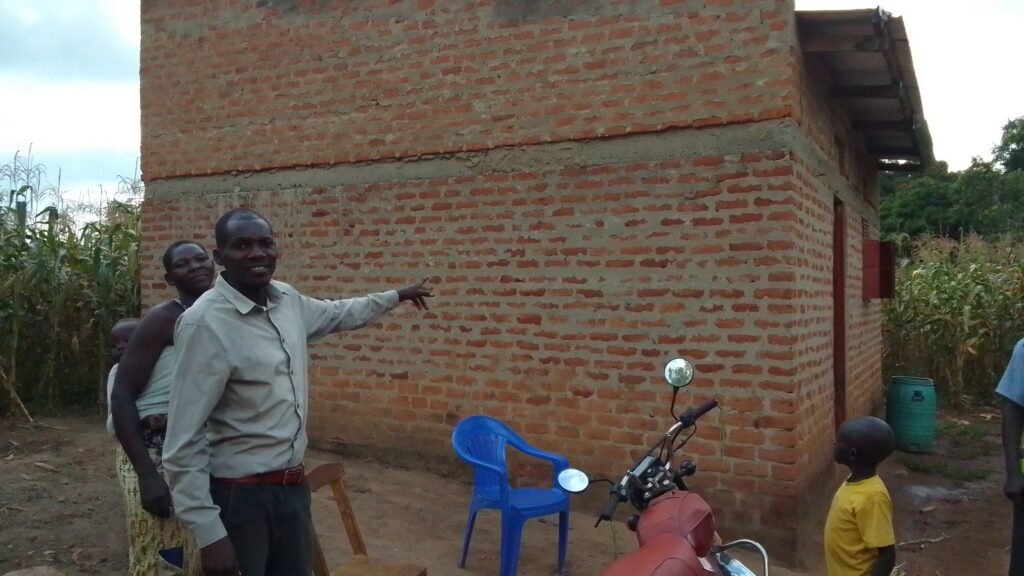
His wife, Joyce Alum, who grows DK8031 maize variety, shares similar success.
“Before we started planting hybrid maize, we didn’t have a good house. Now, we are able to invest in property and buy household items,” she says.
Their story is emblematic of the positive impact hybrid maize is having in Lira district and the wider Lango subregion.
According to projections by Africa Agriculture Watch (AAgWa), maize production in Lira is expected to rise by 12% from 27,833 metric tons in 2023 to 31,314 metric tons in 2024.
This projection gives more hope among farmers, following a decline in maize production between 2008 to 2009 in Uganda, according to research conducted by Feed the future.
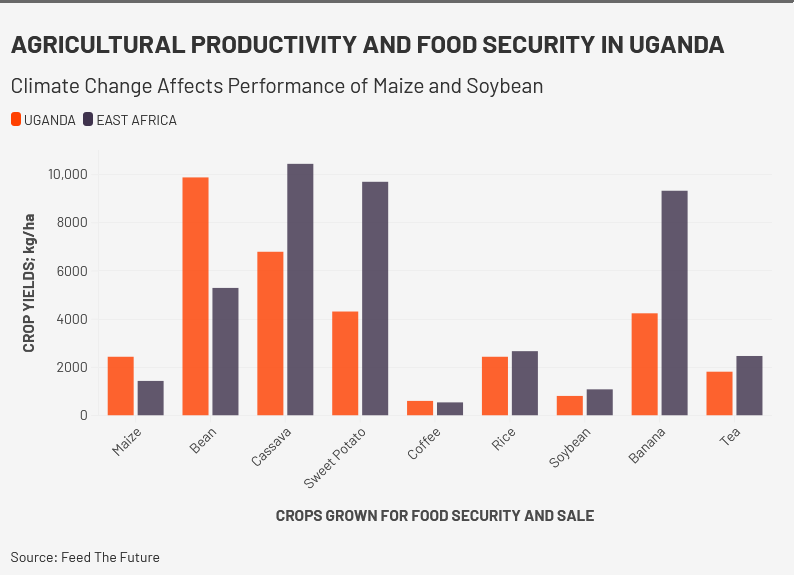
Geoffrey Otim, Lira district’s assistant agricultural officer, emphasises the importance of hybrid maize in coping with the region’s changing climate.
“The indigenous maize varieties have struggled in the face of extreme weather, but hybrid varieties are more resilient, especially when combined with proper agronomic practices,” Otim says.
He points to a maize garden belonging to Agweng subcounty chief that withstood an infestation of American fall armyworms yet still produced healthy cobs.
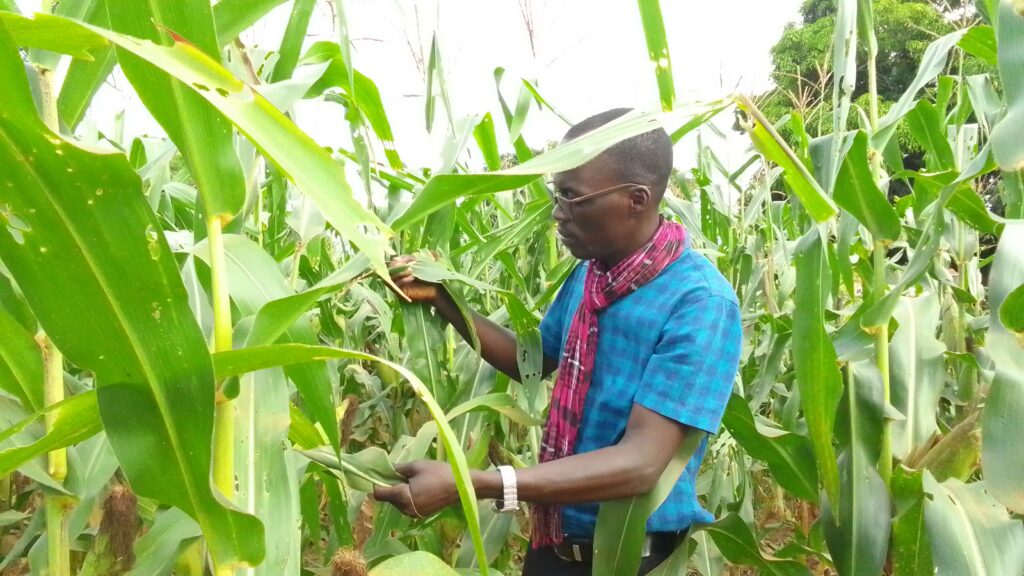
Otim advocates for the use of certified hybrid seeds, which farmers can purchase from licensed agro-dealers or in groups.
While the cost of hybrid seeds can be high, ranging from UGX 30,000 to UGX 35,000 per 2kg package, Otim believes the benefits outweigh the expense.
“These varieties can withstand long dry spells, pests, and diseases, making them a reliable choice for farmers in this region,” he notes.
In Lira, dealers like Crystal Crop Protection report a surge in demand for DK777 maize seeds, due to its strong performance.
“DK777 can yield up to 32 bags per acre when managed with the right practices,” says Sarah Awelo, an agronomist at Crystal Crop Protection.
This increased yield is also driving the adoption of simple farming technologies, such as handheld tractors and ox ploughs, which help expand farmland and reduce labor, particularly for women.
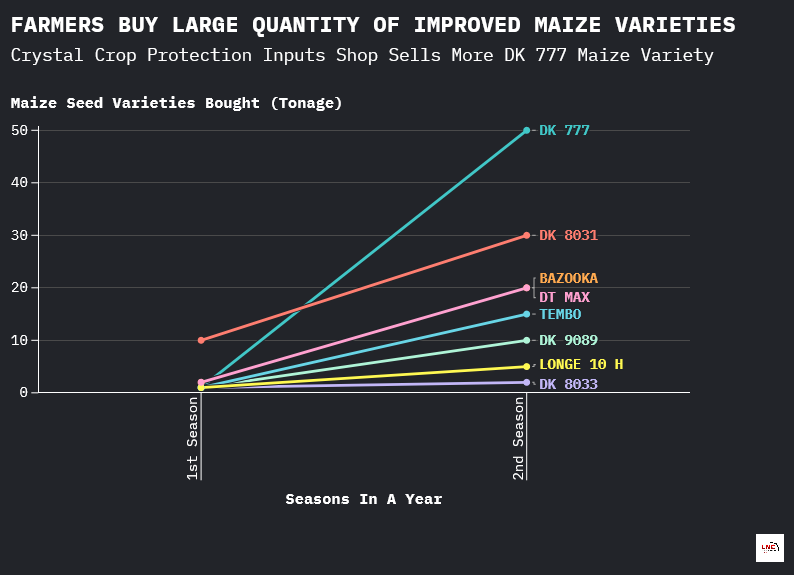
Walter Ogwang Alele, an agronomist at Salak Agro input dealers, suggests farmers can diversify their income by processing maize into products like posho.
“We should encourage farmers to add value to their crops,” Ogwang advises, “whether through making porridge or selling boiled maize with beans.”
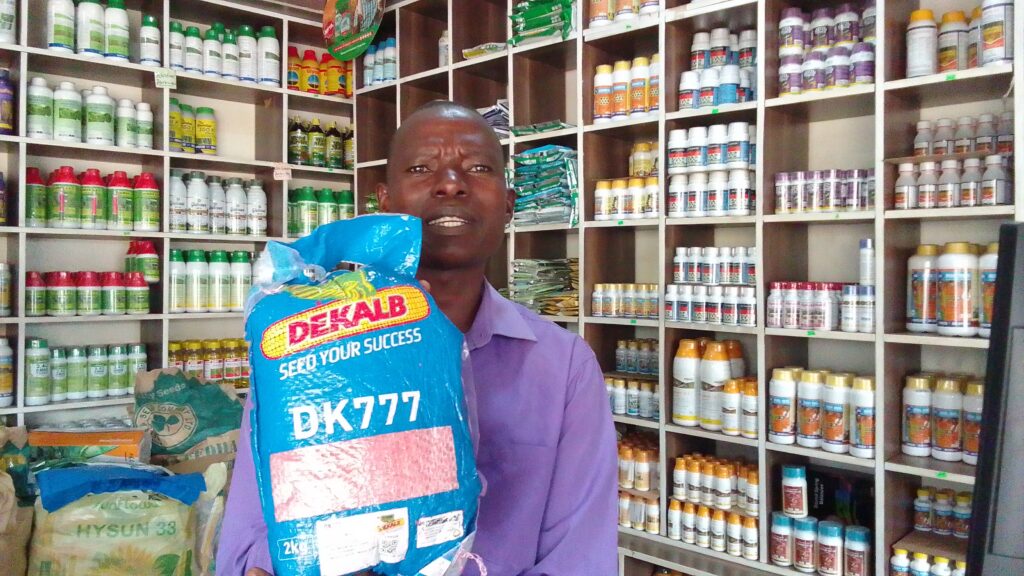
Pamela Walter Ogwang, owner of Alima Grain Millers, prefers hybrid varieties like DK777 for milling, as they produce more refined, whiter posho.
“Our customers consistently praise our posho, and they trust our brand,” she says.
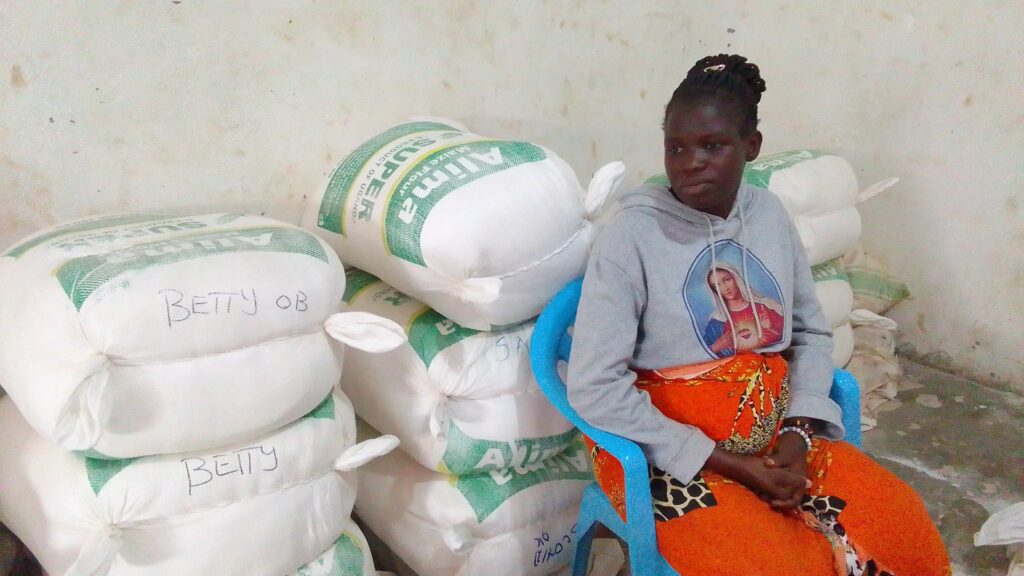
However, the cost of improved seeds remains a concern for many farmers.
Last year, Lira authorities cracked down on illegal agro-input shops selling counterfeit products.
Alum Dorcas, the principal agricultural officer in Lira, reports that the number of licensed agro-dealers has now increased to 107 out of 300 shops, ensuring that farmers can access genuine inputs.
For those unable to afford hybrid varieties, Dr. Otim Godfrey Anyoni, a research officer and crop agronomist at NARO-Ngetta Zardi recommends open-pollinated varieties like Longe 5 D, which are cheaper, more resilient, and don’t require expensive fertilisers.
“Farmers should consider using these open-pollinated varieties, especially if they are on a tight budget,” Anyoni advises.
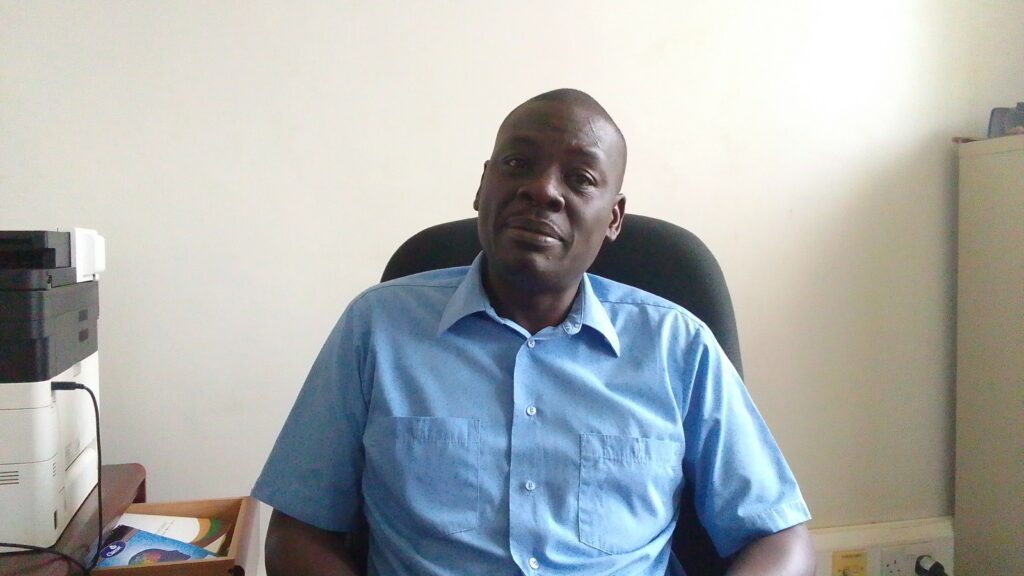
In the face of climate change and economic challenges, hybrid maize has become a vital tool for farmers in Lira, offering not only greater yields and income but also greater resilience against the shifting climate.
As these farmers continue to adopt improved practices, they are proving that with the right knowledge and resources, they can thrive, even in uncertain times.
This story was done with support from InfoNile in Partnership with Palladium